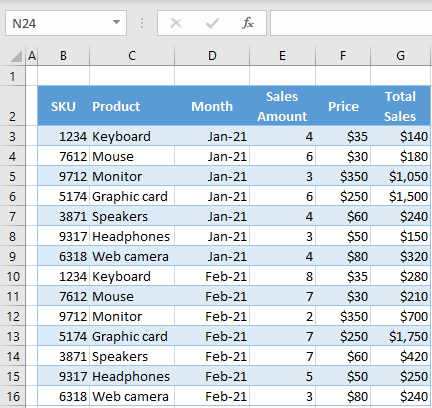5 Steps to Transform Excel Sheets into Templates

Are you tired of spending endless hours reformatting the same Excel sheets for your daily tasks? Whether it's a budget sheet, a sales report, or an employee roster, turning your frequently used Excel spreadsheets into templates can save you both time and effort. In this comprehensive guide, we'll explore five straightforward steps to transform your Excel sheets into reusable templates, making your daily workflow much more efficient.
Step 1: Identify Recurring Data and Structure

Before transforming your Excel sheet into a template, understand what data is recurring and what structure is consistent across multiple uses:
- Look for headers or titles that remain the same.
- Identify cells where dynamic data will be entered.
- Spot areas for formulas or calculations.
This analysis will help you in creating a template that is functional and adaptable. Remember, the goal is to save time by not having to set up the same structure repeatedly.
Step 2: Simplify and Standardize

After identifying the recurring elements:
- Remove unnecessary formatting or data that clutters the sheet.
- Standardize font sizes, colors, and cell borders for consistency.
- Ensure all cells meant for data entry are appropriately formatted (e.g., number formats, date formats).
This step is crucial for creating a clean, professional-looking template that users can easily follow.
Step 3: Implement Dynamic Elements

Now, let’s make your template dynamic:
- Use named ranges to make your formulas more readable and robust against changes in the sheet layout.
- Employ data validation to control what can be entered into cells, reducing errors.
- Implement drop-down lists for predefined selections where applicable.
This ensures that the template remains useful and adaptable to various data inputs:
📌 Note: Using dynamic elements can greatly enhance the usability of your template, but remember to keep it simple. Overcomplicating can make it harder for others to use.
Step 4: Automate with Macros or Power Query

If you’re familiar with Excel’s VBA or Power Query:
- Create macros to automate repetitive tasks like formatting or data manipulation.
- Set up Power Query to import, transform, and load data from external sources seamlessly into your template.
This level of automation can significantly reduce the time needed for data management:
| Task | Without Automation | With Automation |
|---|---|---|
| Data Formatting | Manual | One-click macro |
| Importing Data | Copy-paste and manual adjustment | Power Query refresh |

Step 5: Save as Template

The final step involves saving your Excel sheet as a template:
- Go to File > Save As.
- Choose a location to save the file.
- From the “Save as type” dropdown, select “Excel Template” (*.xltx).
- Give your template a descriptive name.
- Click Save.
Now, your Excel workbook has been transformed into a reusable template, ready to be opened from the New Document section in Excel:
⚠️ Note: Always keep the original template file separate to ensure that any changes made to new instances of the template do not affect the master file.
By following these five steps, you've not only made your life easier but also potentially improved the efficiency of your entire team. These templates can be shared, reused, and adapted as needed, significantly reducing the setup time for common reports, data analysis, and other routine tasks in Excel. The key is in the preparation and simplification, making the process straightforward for all users.
Can templates be updated?

+
Yes, templates can be updated. Simply modify the original template file and save it again. However, remember that any updates to the template will not reflect in documents created from older versions.
How do I share templates?

+
You can share Excel templates by sending the template file directly, setting up a shared drive or folder, or using cloud storage services like OneDrive, Google Drive, or Dropbox.
What are the benefits of using Excel templates?

+
Using Excel templates reduces setup time, ensures consistency across documents, automates repetitive tasks, improves data accuracy with validation, and fosters a more professional look and feel for your data presentations.